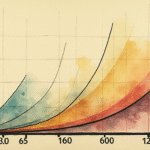Judicial Elections on June 1st: A Mix of Politics and Labor Implications
The upcoming Judicial Elections on June 1st have sparked a common question among the Human Resources community: Is June 1st a mandatory rest day for workers or not? While these elections are described as an extraordinary process, labor law experts argue that this does not suffice to claim June 1st is not a mandatory rest day.
Legal Framework and Previous Interpretations
The Federal Labor Law (LFL) does not explicitly mention June 1st as a mandatory rest day. However, it does recognize election days as holidays. According to Article 74, fraction IX of the LFL, “days of rest are those determined by federal and local electoral laws for the purpose of conducting elections.”
For instance, last year, June 2nd was a holiday according to labor law due to presidential elections. The confusion arises because the National Electoral Institute (INE) classified this year’s Judicial election process as “extraordinary” through agreement INE/CG2358/2024. Some companies have assumed this implies June 1st is not a holiday, but labor law experts disagree.
Expert Opinions on the Matter
Amado Díaz law firm clarifies that the purpose of Article 74, fraction IX of the LFL has always been to ensure no labor impediments for workers exercising their voting rights. They suggest understanding ‘ordinary’ in this context as the magnitude and national impact of elections, not administrative classifications.
Estefanía Rueda from Littler labor law firm concurs, stating that while the lack of clarity in legislation and classifying the first Judicial election as extraordinary can cause confusion, it’s advisable to grant the day off or accept the costs of working on a holiday to avoid risks, especially for companies with active unions.
Diego García Saucedo from García Velázquez Abogados shares this view. Although the LFL doesn’t explicitly mention “extraordinary elections,” this scenario is unprecedented. He argues that the term ‘extraordinary’ in electoral terms is recent and not yet aligned with labor law.
Constitutionally, there’s a hierarchical superiority, and the Federal Labor Law cannot take precedence. In case of doubt, the Constitution should be referred to, which does establish Judicial elections. The specialist believes that interpreting the process as extraordinary should not be seen as an exception for employers in a legal dispute.
Amado Díaz’s firm also argues that denying June 1st, 2025, as a mandatory rest day based on administrative classification would be retrogressive and violate the principles of progressiveness and universality by restricting workers’ full exercise of their political rights in a significant election.
Implications of June 1st as a Mandatory Rest Day
If June 1st is considered a mandatory rest day, companies face two scenarios. The first is straightforward: grant workers the day off with full pay.
The second scenario involves paying those who work on the day according to the LFL, which requires double the regular salary plus ordinary compensation, often referred to as “triple pay.”
Additionally, since it falls on a Sunday, workers are entitled to a 25% dominical premium over their regular salary.
It’s important to note that holidays are separate from the vacation days workers are entitled to and cannot be counted towards their vacation period.
The Uncontested Right to Vote
Amidst the uncertainty, experts agree on one thing: employers must allow employees to exercise their voting rights, regardless of whether the election is ordinary or extraordinary.
“This remains unchanged, irrespective of whether it’s an ordinary or extraordinary election. Companies always have the obligation to allow workers to choose their functionaries, including in cases of revoking a mandate. The right to participate in such exercises is now incorporated into the law,” says Estefanía Rueda.
Diego García Saucedo echoes this, emphasizing that even if employers pay for working on a rest day, they must provide sufficient time for employees to vote.
The LFL imposes a fine ranging from 5,675 to 169,710 pesos on workplaces that prevent workers from exercising their voting rights. This penalty can apply per affected worker.






